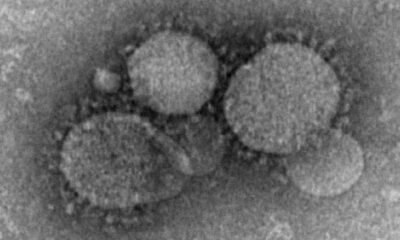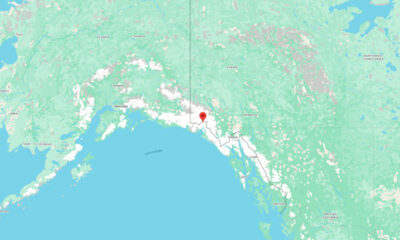Legal
U.S. sanctions Mexican oil smuggling and drug trafficking network linked to CJNG

The U.S. Department of the Treasury announced that it has sanctioned three Mexican nationals and two companies for their involvement in a vast fuel theft and narcotics trafficking operation linked to the Cartel Jalisco Nueva Generación (CJNG), a designated foreign terrorist organization.
The network, which spans Mexico and the U.S. southwest border, is accused of generating hundreds of millions of dollars annually through fentanyl trafficking, crude oil smuggling, and other criminal activity, the Treasury Department said in a statement on Thursday.
The Office of Foreign Assets Control (OFAC) designated Cesar Morfin Morfin, also known as “Primito,” along with his brothers Alvaro Noe and Remigio Morfin Morfin, for their roles in fueling CJNG’s criminal operations. Two hazardous materials transport companies—SLA. Servicios Logisticos Ambientales, S.A. de C.V. and Grupo Jala Logistica, S.A. de C.V.—were also sanctioned for operating on behalf of the network.
According to the Treasury Department, “Primito” is the CJNG cell leader in Tamaulipas, Mexico. He previously led a faction of the Cartel del Golfo, which he realigned with CJNG due to his close ties to cartel leader Ruben Oseguera Cervantes, also known as “El Mencho.”
In addition to overseeing fuel smuggling operations, Primito is heavily involved in trafficking fentanyl, heroin, methamphetamine, cocaine, and marijuana into the U.S., and is known to import fentanyl and methamphetamine precursor chemicals from China. Authorities described his lifestyle as lavish, marked by exotic animals and dozens of luxury vehicles.
His network relies on corrupt employees of Mexico’s state-owned oil company, Pemex, and imposes fees on smugglers transporting stolen crude oil through key border crossings between Tamaulipas and Texas. The illicit proceeds are laundered through front companies operating in the fuel transport and retail gasoline sectors.
The two companies named in Thursday’s action are accused of transporting stolen crude oil between Mexico and the U.S. on behalf of Primito’s network. These businesses allegedly function as logistical enablers of the broader huachicol—fuel theft—enterprise that Mexican officials say costs the country billions of dollars each year.
“Fuel theft and crude oil smuggling are cash cows for CJNG’s narco-terrorist enterprise,” said Treasury Secretary Scott Bessent. “Treasury will continue to use all available tools to relentlessly target drug cartels and foreign terrorist organizations to Make America Safe Again.”
CJNG, previously sanctioned in 2015 and 2021, was designated as a Foreign Terrorist Organization (FTO) and Specially Designated Global Terrorist (SDGT) by the U.S. State Department in February, following an executive order by President Trump. The cartel is one of the most violent criminal organizations in Mexico and a major trafficker of fentanyl into the United States.
In parallel to the OFAC sanctions, Treasury’s Financial Crimes Enforcement Network (FinCEN) issued an alert warning financial institutions about red flags associated with fuel smuggling operations. The alert is part of a broader campaign to disrupt the financial infrastructure of transnational criminal organizations.
Authorities say Thursday’s designations mark a continued expansion of efforts to dismantle the cartel’s economic base, including its growing reliance on non-drug revenue streams.
As a result of the sanctions, all U.S.-based assets belonging to the designated individuals and companies are now blocked, and U.S. persons are generally prohibited from conducting transactions with them. The designations also open the door to secondary sanctions for foreign institutions that knowingly facilitate transactions on their behalf.

-

 Health1 week ago
Health1 week agoFrance confirms 2 MERS coronavirus cases in returning travelers
-

 Health1 week ago
Health1 week ago8 kittens die of H5N1 bird flu in the Netherlands
-

 US News5 days ago
US News5 days agoMagnitude 7.0 earthquake strikes near Alaska–Canada border
-

 Entertainment1 week ago
Entertainment1 week agoJoey Valence & Brae criticize DHS over unauthorized use of their music
-

 US News1 week ago
US News1 week agoFire breaks out at Raleigh Convention Center in North Carolina
-

 Legal2 days ago
Legal2 days agoShooting at Kentucky State University leaves 1 dead and another critically injured
-

 Legal7 days ago
Legal7 days agoWoman detained after firing gun outside Los Angeles County Museum of Art
-

 Health1 week ago
Health1 week agoEthiopia reports new case in Marburg virus outbreak




